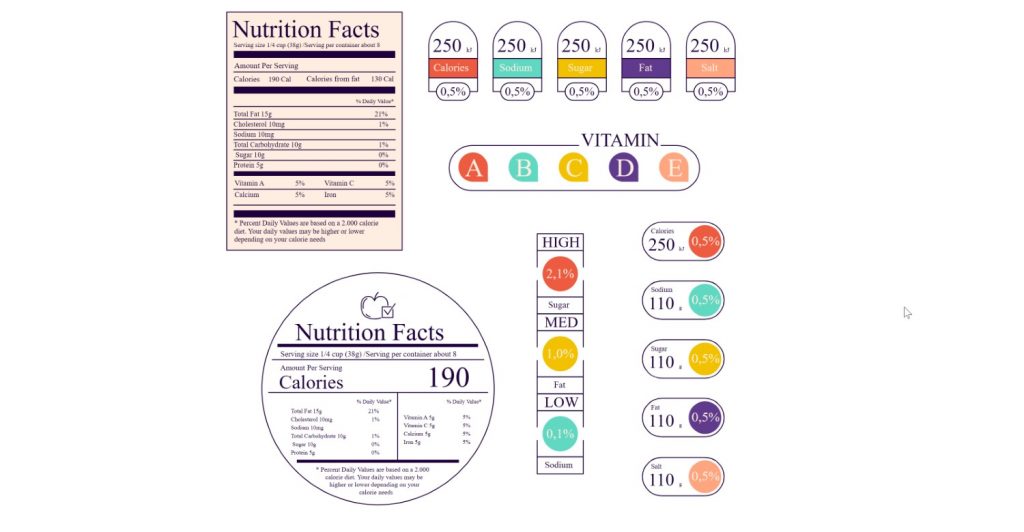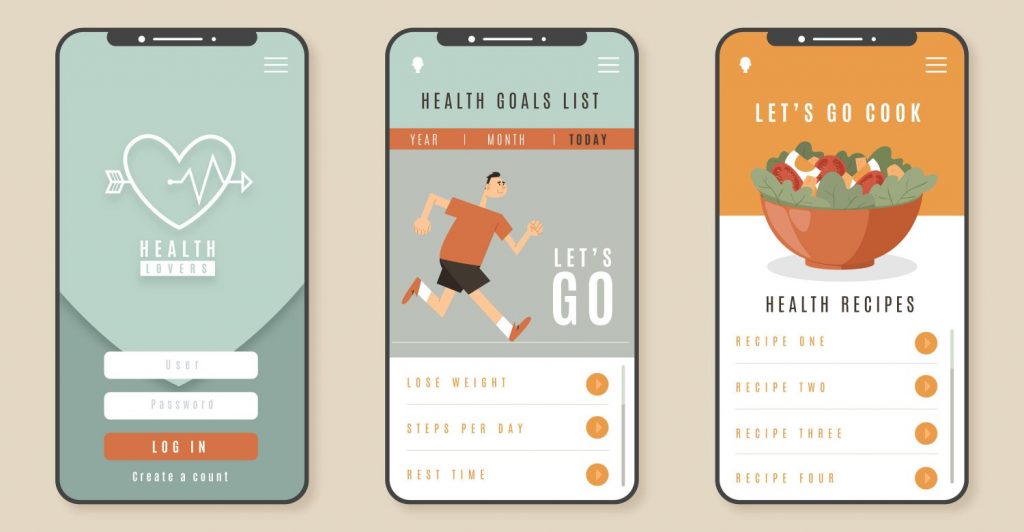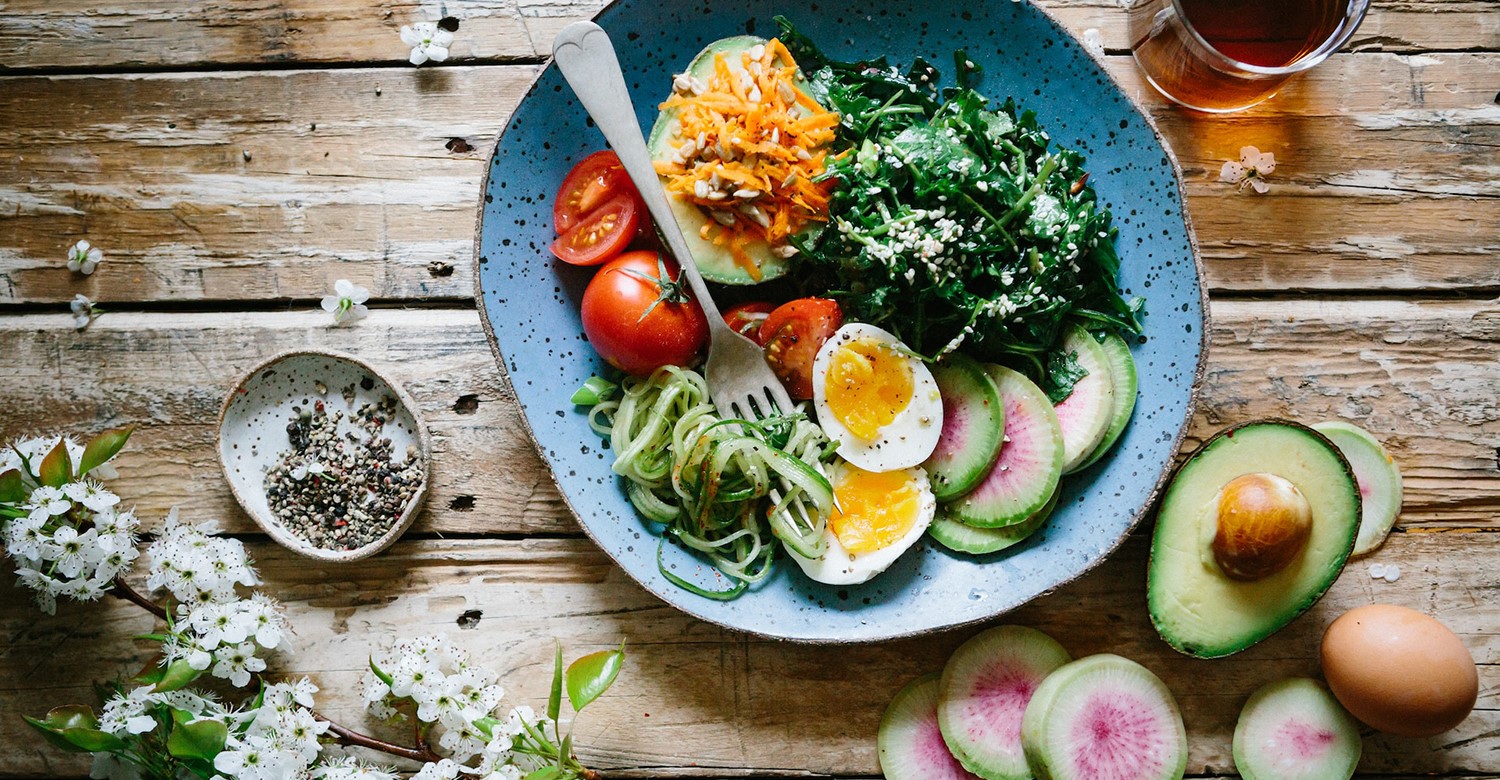In our fast-paced lives, eating healthily often takes a back seat. The struggle to make wholesome choices amid the chaos is real. But guess what? Our smartphones, those nifty devices that keep us connected and entertained, can also be our partners in cultivating better eating habits. That’s where nutrition and diet apps come into play. These digital sidekicks are like our diet detectives, helping us monitor what we eat and how we nourish our bodies.
Table of Contents
The Role of Nutrition and Diet Apps
Think of nutrition and diet apps as your health-conscious companions in this tech-savvy era. They’re not just apps but tools designed to support your journey towards a healthier lifestyle. With their help, you can track your meals, snacks, and everything in between, giving you an accurate picture of your dietary habits. These apps are like those encouraging friends who root for you to make better choices.
Key Features of Nutrition and Diet Apps
Let’s dive into the features that make these apps more than just icons on your phone:
Food Logging and Tracking:
Would you ever remember what you ate for lunch last Tuesday? Nutrition apps have you covered. They let you log your meals, recording what you eat and when. It’s like keeping a diary of your culinary adventures, minus the pen and paper.
Nutritional Information and Databases:
No more squinting at labels to figure out how many calories are in that granola bar. Nutrition apps have extensive databases that tell you what’s in your food. Whether protein, carbs, or vitamins, they break down your meals in a language you understand.
Customized Meal Planning:
Remember when you tried a diet that didn’t suit you? Nutrition apps prevent that. They tailor meal plans to your preferences, allergies, and goals. It’s like having a personal chef who knows what you need.
Setting Goals and Tracking Progress:
Setting goals is the name of the game. Want to drink more water or cut back on sugar? These apps let you set targets and watch your progress in real-time. It’s like having a finish line that you’re constantly moving towards.
Integration with Wearable Devices:
Remember those fitness trackers everyone was raving about? Nutrition apps sync up with them. That way, your steps and meals are in sync, giving you a complete picture of your health journey.

Benefits of Using Nutrition and Diet Apps
Now that you’re getting the hang of it let’s explore why these apps are more than just trendy tech toys.
Increased Awareness of Food Choices:
Picture this: You’re about to grab that bag of chips, and then you remember you’re logging your food. Suddenly, that choice becomes a conscious one. Nutrition apps make you think twice about your preferences, making mindful eating a habit.
Enhanced Accountability and Motivation:
Having an app of those on your phone is like having a little cheerleader. When you track what you eat, you’re accountable to yourself. Plus, seeing your progress is a fantastic motivator to keep going. It’s like a personal trainer for your diet.
Personalized Recommendations:
These apps aren’t just about numbers. They learn about your preferences and goals, tailoring recommendations to you. Think of them as your nutritional advisors, available 24/7.
Tracking Nutrient Intake and Deficiencies:
It’s not just about calories; it’s about nutrients. Nutrition apps help you see if you get enough vitamins, minerals, and other essentials. They’re like your nutritional compass, keeping you on the right path.
Better Management of Special Dietary Needs:
Eating out or grocery shopping can be tricky for those with allergies or dietary restrictions. Nutrition apps simplify things, highlighting foods that align with your needs. It’s like having a personal assistant who knows your food preferences by heart.
Popular Nutrition and Diet Apps in the Market
With the basics covered, let’s explore some of the top players in the world of nutrition and diet apps:
MyFitnessPal: If you’ve dipped your toes into tracking, you’ve probably heard of MyFitnessPal. It’s like a food diary with a PhD in nutrition. It tracks your meals, offers insights, and syncs with your workouts.
Calorie Counter by Lose It!: Want a helping hand in shedding those extra pounds? Lose It! is here. It’s not just about calories; it’s about setting achievable goals and celebrating your wins, no matter how small.
Calorie-Counter by Cronometer: For those who geek out over nutrients, Cronometer is a dream. It dives deep into vitamins, minerals, and macronutrients. It’s like having a dietitian at your fingertips.
Yazio: Yazio takes a holistic approach. It’s not just about calories; it covers intermittent fasting and the quality of the calorie intake. It crafts meal plans that align with your goals and lifestyle.
Lifesum: Lifesum’s charm lies in its simplicity. It’s like the cool cousin who makes healthy choices look effortless. Whether you’re keto or vegetarian, Lifesum caters to you.

The Science Behind Food Tracking
Curious about why these apps work? It’s not just tech magic; there’s science behind it.
When you track your food, you’re practicing what psychologists call the “observer effect.” You make more mindful choices when you know you’re being watched (even by an app). It’s like having a gentle reminder to consider your options before diving into that dessert.
Research backs it up, too. Studies show that people who track their food are more likely to reach their health goals. It’s not about being a calorie detective; it’s about being aware of what you’re eating, which sets the stage for lasting change.
Challenges and Limitations:
Of course, every tool is flawed. Nutrition and diet apps come with their fair share of challenges:
User Adherence and Consistency:
Life happens, and tracking every bite can be challenging. But even if you could be better, following intermittently still offers valuable insights.
Reliability of Nutritional Databases:
Nutrition info isn’t immune to errors. Sometimes, the data might be less than 100% accurate. It’s a good idea to cross-check information when in doubt.
Potential for Obsessive Behavior:
While these apps are meant to help, they shouldn’t fuel an obsession. Remember, they’re tools, not tyrants. Let them guide you, but don’t let them control you.
Privacy and Data Security Concerns:
Sharing personal data is part of the deal. Make sure you’re using apps with solid privacy measures and user reviews that vouch for their security.
Stay tuned for the second part, where we’ll delve into tips for making the most of nutrition apps and explore the future of these tech marvels.
Tips for Effective Usage:
Ready to make the most of these nutrition apps? Here are some practical tips to keep in mind:
Setting Realistic Goals:
Rome wasn’t built in a day, and neither are healthy habits. Start with achievable goals that match your aspirations. Gradual changes are more sustainable than sudden overhauls.
Being Honest and Accurate:
Remember, you’re tracking for yourself, not for a competition. Be truthful in your entries, even if it’s that sneaky chocolate chip cookie you snuck in. Honesty helps you truly understand your habits.
Regularly Reviewing Progress:
Keep your data from gathering digital dust. Take time to look at your logs. Spot patterns, celebrate victories, and adjust your goals as you go. It’s like a progress report for your well-being.
Using Apps as Tools:
These apps are like personal trainers for your diet. But remember, they’re not the boss. Use them as tools that empower you, not as rigid rulebooks that dictate every bite.
The Future of Nutrition and Diet Apps
Buckle up because the future of these apps is exciting:
Integration of AI and Machine Learning: Imagine an app that knows your preferences as well as your best friend does. AI and machine learning could make that happen. These apps might soon offer tailored advice that evolves as you do.
Seamless Integration with Experts: Nutrition isn’t one-size-fits-all. In the future, these apps could connect you with experts like dietitians and nutritionists. Think of it as having your health dream team.
Embracing Health with Nutrition and Diet Apps
In a world that seems to spin faster each day, nutrition and diet apps are anchors that keep us grounded in our health journey. These apps aren’t about restriction; they’re about empowerment. They remind us that every bite counts and that every choice shapes our well-being.
So, as you navigate the grocery store aisles or decide what’s for dinner, consider bringing a nutrition app. It’s like having a friend who whispers, “You’ve got this!” in your ear. Let technology be your ally in making mindful choices and building a healthier relationship with food.
FAQ: Navigating Nutrition and Diet Apps
Q1: Are these apps only for people trying to lose weight?
A1: Not at all! While some apps are tailored for weight management, many cater to various goals, including muscle gain, improved energy levels, and overall well-being.
Q2: How accurate are the nutritional databases in these apps?
A2: Nutritional databases are continuously updated, but discrepancies can still occur. It’s an excellent practice to cross-reference information when in doubt, especially for packaged and restaurant foods.
Q3: Can I use these apps if I have dietary restrictions or allergies?
A3: Absolutely! Many apps allow you to set dietary preferences and allergies, tailoring recommendations to your needs. They can be invaluable tools in managing your nutritional requirements.
Q4: Can these apps replace the need for professional dietary advice?
A4: While these apps offer valuable insights, they are not a substitute for personalized advice from healthcare professionals or registered dietitians, especially if you have specific health concerns.
Q5: How often should I use these apps to see results?
A5: Consistency is critical. Using these apps regularly, even if not every day, can help you develop awareness of your dietary habits and make positive changes over time.
Q6: Are these apps suitable for children and teenagers?
A6: Some apps offer features tailored for younger users, helping them develop healthy eating habits early on. However, parents must supervise app usage and ensure it meets their child’s needs.
Q7: Can I share my progress on social media through these apps?
A7: Many apps offer social sharing options, but being mindful of oversharing personal information online is essential. Use these features cautiously and consider your privacy settings.




